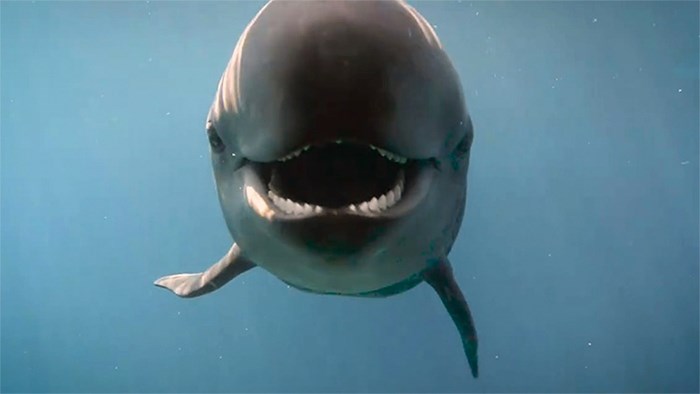 Chester. Photo Â鶹´«Ã½Ó³»Aquarium
Chester. Photo Â鶹´«Ã½Ó³»Aquarium
VANCOUVER - The Â鶹´«Ã½Ó³»Aquarium says preliminary results from a necropsy show a false killer whale that died at the facility last Friday had a bacterial infection.
An email statement from the aquarium says it appears Chester, the three-year-old false killer whale, died of erysipelas, an illness veterinarian Dr. Martin Haulena says has resulted in the deaths of wild cetaceans and those in human care.
Haulena says it is the first known case of the disease at the aquarium.
Because it is infectious, Haulena says Helen, a Pacific white sided dolphin who shared a pool with Chester, is being treated with antibiotics.
Chester was brought to the aquarium when he was just a few weeks old, after being found stranded on a Â鶹´«Ã½Ó³»Island beach in July 2014.
The aquarium has said the false killer whale, a member of the dolphin family, remained a "health challenged animal" throughout his life.
Chester's death leaves Helen as the aquarium's only remaining cetacean, and the statement says options to find a companion for her are limited by a Â鶹´«Ã½Ó³»Park Board bylaw banning the acquisition of new whales, dolphins or porpoises.
The ban was imposed in May, months after two beluga whales died nine days apart from what officials said was a mysterious illness.
In June, a nine-year-old rescued harbour porpoise named Daisy also died. The aquarium said at the time that preliminary necropsy results showed the animal had pulmonary disease.
![]()


